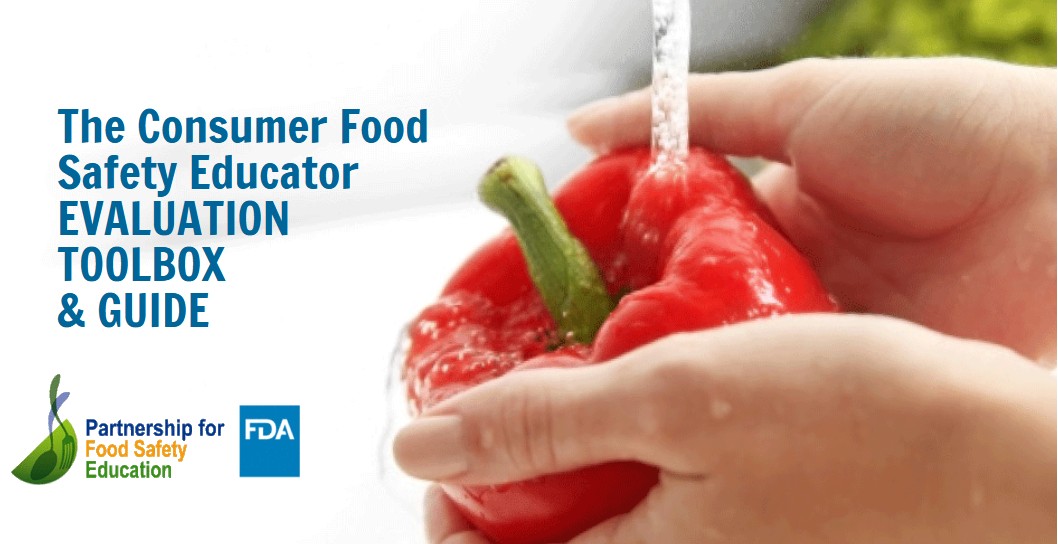Consumer Food Safety Educator Evaluation Toolbox and Guide
In collaboration with the Partnership for Food Safety Education, FDA's Center for Food Safety and Applied Nutrition released The Consumer Food Safety Educator Evaluation Toolbox and Guide.
The toolbox and guide were created to serve as a planning and evaluation tool with tips, tools, and examples to help consumer food safety educators develop and evaluate their programs and activities.
In order to ensure that consumer food safety education programs are effective in achieving their goals and preventing foodborne illness, it is important that these programs incorporate a rigorous and thorough program evaluation.
Evaluating your education program is important and beneficial to its overall success. For example:
- An evaluation can help you identify the strengths and weaknesses of your program, learn from mistakes, and allow you to continuously refine and improve program strategies.
- By using evaluation data to improve program practices you can ensure that resources are expended as efficiently and effectively as possible.
- Evaluation data can provide program staff with valuable insight to help them understand the impact of the program, the audience they are serving, and the role they can play to contribute to the program’s success.
- There is no way to really know what kind of effect your program or activities are having without a program evaluation.
- Evaluation data can show you how successful your program is in preventing foodborne illness and promoting safe food handling practices.
- Conducting an evaluation can help you monitor the program and ensure accountability.
- Sharing what you learned from the evaluation with other consumer food safety educators can help them design their own programs more effectively.
- Having documentation and data that show how your program works can help you receive continued or new funding. Evaluation data is usually expected when applying for grants.
- Demonstrating that your program has an impact can help increase support of activities by other researchers, educators, and the greater community.
- Showing the target audience how effectively your program works can help increase interest and participation.


